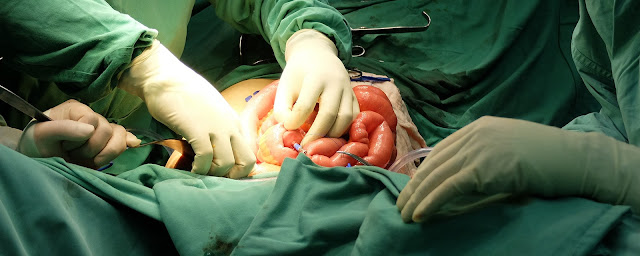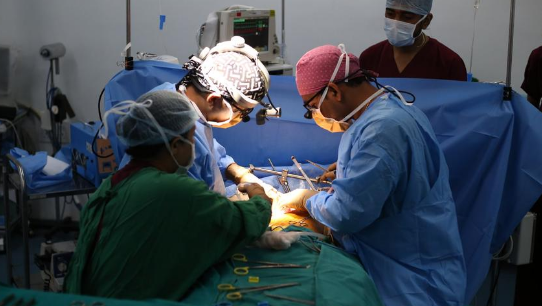Who Need Liver Transplantation And What Are The Signs And Symptoms
Liver transplantation is a critical medical surgery that gives hope to those suffering from end-stage liver disease. This article dives into the essentials of liver transplantation, such as the individuals who may require the procedure and the indications and symptoms that may signal liver illness. So, who needs a liver transplant? Essentially, anyone suffering from liver failure may be a candidate for this operation in our best liver hospital in Delhi. Acute liver failure can strike suddenly, or it can be a gradual disorder that develops steadily over time - chronic liver failure. A variety of illnesses can induce persistent liver damage, necessitating a liver transplant. Cirrhosis, which is frequently caused by hepatitis or long-term alcohol consumption, liver cancer, hereditary illnesses, and diseases that lead the immune system to attack the liver are examples of these.
Who Requires a Liver Transplant?
The liver is one of the body's most powerful organs since it regenerates itself. However, continued injury to the organ might eventually lead to hepatic failure, in which the liver loses its ability to operate. End-stage liver disease (ESLD) or, in certain situations, abrupt liver failure may necessitate a liver transplant. Individuals with cirrhosis, a degenerative illness in which scar tissue replaces normal, healthy tissue, are frequently at the top of the list of people in need of a liver transplant.
Liver Disease Signs and Symptoms:
Understanding the signs and symptoms of liver disease is critical to receive the proper medical treatment. Early detection can aid in the management of the problem before it advances to the point where a liver transplant is required. Liver disease can be caused by infection, insulin resistance, or obesity. Jaundice, a yellowing of the skin and eyes caused by the buildup of a waste byproduct called bilirubin, is a frequent symptom. Other possible indications include lack of appetite, nausea, weariness, and weakness. Swelling in the belly and legs owing to fluid accumulation, easy bruising and bleeding, and mental disorientation or tiredness as toxins collect in the blood and brain are more severe symptoms. Here are some warning signs and symptoms to look out for.
1.
Jaundice (yellowing of the skin and eyes)
When the liver isn't working properly, it can't process bilirubin properly, resulting in jaundice, which appears as yellowing of the skin and eyes.
2.
Swelling and pain in the abdomen
Ascites (fluid buildup in the abdomen caused by liver illness) can cause discomfort and edema.
3.
Leg and ankle swelling
The liver generates proteins that are required for fluid retention. However, if your legs are harmed, fluid may build.
4.
Prolonged Fatigue
Fatigue or a persistent feeling of exhaustion that does not improve with rest may indicate chronic liver disease.
5. dark Urine
Bilirubin darkens as it combines with urine. Patients suffering from liver illness may observe darker-than-normal urine.
6.
Vomiting or Nausea
Chronic or persistent nausea and vomiting may suggest liver illness.
Getting Ready for a
Liver Transplant:
Patients are authorized for a rigorous examination procedure if they have been diagnosed with end-stage liver disease or acute liver failure and the choice to transplant is taken. They are evaluated based on several characteristics, including the severity of their liver disease, the existence of other health conditions, their mental and psychological well-being, and their comprehension and desire to receive post-transplant treatment in our liver transplant hospital in Delhi. If you or a loved one fall into one of the categories outlined, you must get medical attention as soon as possible. The success rate of liver transplants is high, and many recipients go on to live normal, productive lives after the procedure since we are providing you with the best livertransplant surgeon in Delhi. Nobody should have to suffer in silence from the signs of liver disease. Act soon to receive life-saving treatment - call a health expert now to explore your liver transplantation alternatives.
The Value of Early
Detection:
Early identification of liver illness is critical for more successful therapy and management measures, which may postpone the need for a liver transplant. Patients can also improve their life expectancy and quality of life by adopting lifestyle changes such as eating a healthy diet, exercising regularly, and avoiding alcohol and smoking.
Conclusion:
Liver
transplantation is a life-saving treatment that gives many people suffering
from serious liver illnesses hope. While being aware of the signs and symptoms
of a potential liver illness is critical, adopting proactive actions to
preserve liver health can make a huge impact. Individuals must have a healthy
lifestyle to keep their livers healthy and operating properly. Regular
medical examinations and liver function testing are effective preventative strategies against developing serious liver disease. If you or someone
you know is suffering any of the symptoms listed above, get medical treatment
immediately.



Comments
Post a Comment